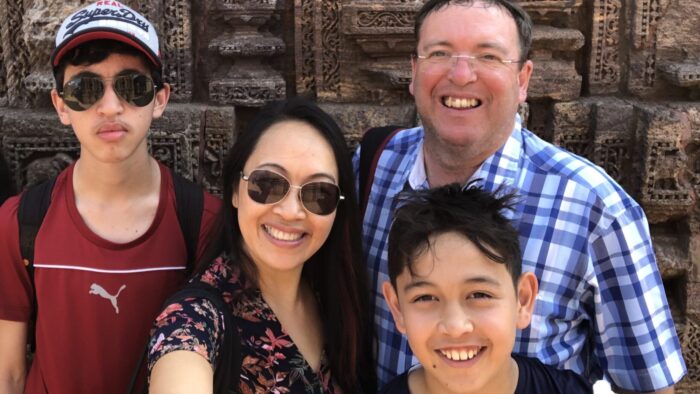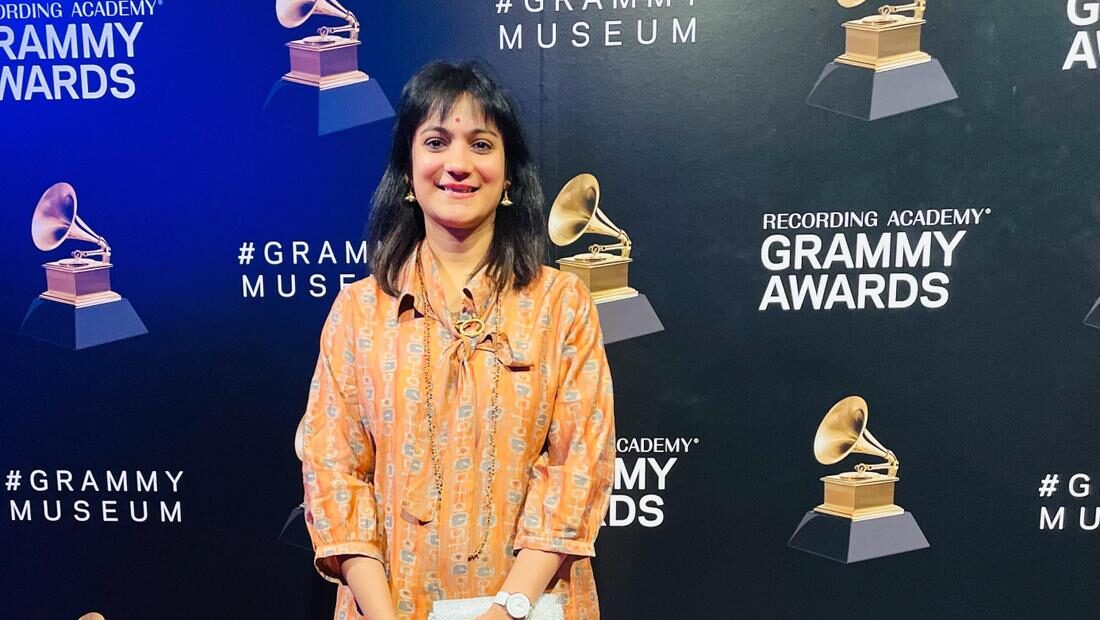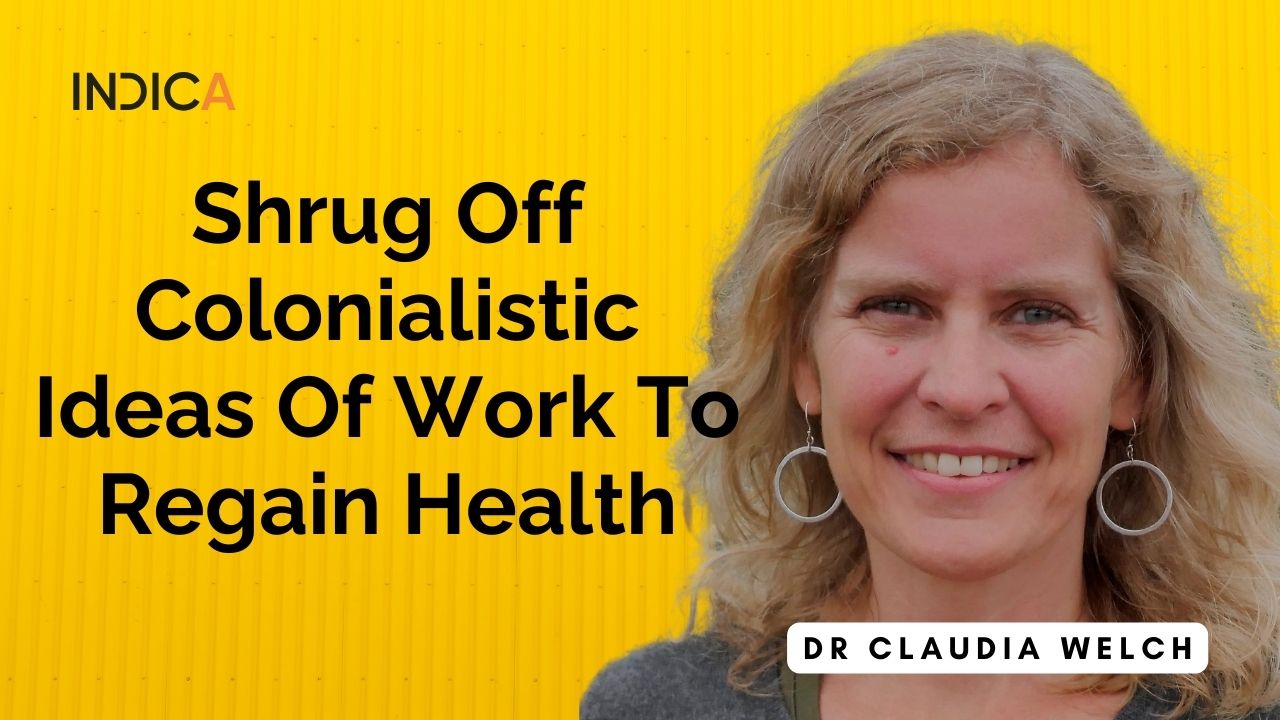The Year 2021 is special for Hyderabad and Secunderabad as the twin cities complete 430 and 215 years, says Dr Andrew Fleming, British Deputy High Commissioner to Andhra Pradesh and Telangana. Based in Hyderabad, he speaks about the soft power potential of the Telugu speaking region in Education, Tourism, and Tech and Life Science. He compares Hyderabad to London, saying both cities are a melting pot of cultures and have an eternal sense of mystery.
Dr Fleming, you have spoken about your fascination for maps in your childhood. Does this continue today?
Maps were my escape as a child. I had, like many children a strong imagination and I pictured myself in so many far off places with the bazars of India being one distinct memory going back to my primary school days. So with that experience, maps remain important to me – there are three hanging in my home, one from the 1700s; and many books on maps to be found on my rather haphazardly arranged book shelf. In recent times, I have even learnt to use Google maps properly but if truth be told, I am a bit of a luddite and I like my maps in print!
What according to you is the best launch vehicle for diplomats in making a contribution to international relations? How would you grade the College of Life and Travel versus elite Universities and government training programs?
My journey was far from conventional and so I cannot make the comparison you ask. I did not attend any university and my Honorary Doctorate was a very recent thing that made my father so proud. In my acceptance speech, I spoke about my route to Diplomacy and told that I was a graduate of the University of Life. In the UK, this is still possible – you can enter the Civil Service at the lowest grade and rise to far higher levels than I have. There are a few examples of more senior colleagues than I who did this now heading Sovereign Posts and I make no secret of my ambition to follow in their footsteps if possible. However, the vast majority of our top diplomats are the products of some of our nation’s best universities, our new High Commissioner to India for example, Alex Ellis, was at Cambridge.
Going to University does not preclude travel – we both happen to have spent times in our teens traveling (and indeed in Alex’s case working as a teacher) in India. Because of being at work from 17 I was able to travel once or twice a year but for relatively short times – many university students have the chance of longer overseas experiences but by 30 I had been to over 60 counties learning and taking something from each (now the running total is 115). I think whatever the background people have, a good diplomat will be someone with a genuine interest and curiosity in the world. I had a wonderful job once where I was given license to wander around West and Central Africa building contacts and relationships on a specific theme. I think I was well suited to that because of my experiences and interests and it reflected in what I achieved – it was front line old school ‘expeditionary diplomacy’ which these days, in the same region, would probably not be possible in the same way.
And by working at every level of my service (I did not start in the Diplomatic service) I think I have an empathy with junior colleagues that can be very hard for those who have entered at a management level to entirely replicate. This has served me well in all my jobs. But I equally see the benefits that a far higher level of formal education have given some of my peers and seniors. The bottom line is my organisation - Foreign, Commonwealth & Development Office (FCDO) embraces diversity and makes it possible for people to progress based on their skills and talents – I am very lucky to be part of that.
And here in India of course, a nation has produced excellent diplomats like recently retired Syed Akbaruddin the pathway is different for aspiring diplomats but clearly, from all I have interacted with, it works very well too.
Were you given a choice of posting? Could you share your first thoughts about Hyderabad.
Hyderabad, as a place I wanted to visit, first came on my radar in the 80s when I saw an image of the Charminar and was so intrigued I started reading about it. However, I will confess I did not know there was a British Deputy High Commission here until I read the job advert. Within a day I had spoken to the then post holder and decided I wanted this position. I applied, was successful, and first visited Hyderabad in 2016 having secured the role. It was a bit of a blur, but I went to see the Charminar – then still circumvented by traffic.
When I returned in July 2017 to take up my post I felt welcome and at home from the moment I set foot in the city. I had done as much homework as possible and it really paid off. There are - in my mind - two types of cities – the one that has the listed sights you can marvel at and then say you have ‘done’ and the type full of hidden secrets waiting to be discovered, a place where the more you see and know the more you realise you don’t know much at all. Hyderabad I realised immediately was like that and from my arrival until now the discovery continues.

Dr Andrew Fleming riding an e-bicycle made in Hyderabad by GMW Smart Auto and which is being exported to 19 countries
Having travelled around the world, which cities would you compare Hyderabad with?
I always compare Hyderabad to London because, both cities are what I have described in my last answer. Also they are both incredibly cohesive – a melting pot of diverse cultures and faiths. London has a resident of almost every nation on earth, Hyderabad did not compete in that way but, as one of the world’s fastest growing cities, it has residents from every state in India and people representatives of the many faiths of this great nation. And what both cities have in common is that when they celebrate a festival- be it Hindu, Muslim, Christian, Sikh or otherwise, people of every other faith are (outside of pandemic times) likely to come out and join in. I just love this fact!
What are the areas of partnership between UK and India which have been a focus for you?
Before the UK had a Deputy High Commission serving erstwhile Andhra Pradesh we had a Trade Office here in Hyderabad, established around 2005. And our relationship on Trade and Investment between this region of India and UK remains an important priority. The Tech and Life Science sectors provide a platform for many collaborations between our my nation and the Telugu speaking region, be it between top end companies, obviously including in the response to COVID-19, or providing soft landings for Start-Ups. We continuously and proactively work on all of this. One of the latest outcomes was an MoU signed between that wonderful incubator, WE Hub (which by the way affords the best view of the new city) and Bolton University which was witnessed by both my Foreign, Commonwealth and Development Office Minister, Lord Ahmad and Honourable K.T. Rama Rao garu, is one of the latest milestones. There is a lot more work in the pipeline so follow our UK in Hyderabad Twitter handle to keep in touch.
I want us to make more progress in other sectors like Aerospace and Defence, as well as the Creative Sector and AgriTech sectors. On the latter, we are also looking to deepen our collaboration with ICRISAT, a UN institution that leads the scientific vertical of food security in the semi-arid tropics and is a top class centre for research in this area.
On top of this there is Education, the primary remit of British Council, and Climate Change which is a top priority for my government which will host COP26 at the end of 2021.
Were you able to discuss any new cultural initiatives with the new High Commissioner of the UK to India during his recent visit?
Most of our cultural activities here in India are primarily led by the British Council. The current pandemic makes physical cultural activities difficult to plan at the current time. Yet, it is hugely gratifying how people remember what we have done. The last major cultural initiative saw Anoushka Shankar accompany the film Shiraz: A Romance of India on her sitar. It was a magical evening, it was also the first charged event we ever did in the city. 2000 tickets went in hours and the organisers said they could have sold 10 fold. It shows the appetite that Hyderabadi’s have for culture and I hope we will bring more once global circumstances permit.
Even a decade ago the digital divide between India and the West was very huge. Would you say that since then India has made huge strides in digital access and empowerment?
Yes, undoubtedly this has been transformational and there are greater experts than I who can set out the detail. However, as a force for good it has helped many people improve their business and their status.
One thing I do notice here is how women and girls tend to be disadvantaged in accessing and harnessing the new opportunities the digital age offers. This is especially evident when I work with partners like ‘Voice 4 Girls’ who do such amazing work with poorer communities.
Also, the digital age opens up new threats of Cyber Crime (a topic the Lord Mayor of London raised when he visited in 2019) as well as the risk (again more impacting women and girls) of cyber based bullying and harassment on which I am in touch with the leader of Women’s Safety, Swati Lakra and another NGO active in this area, Tharuni.
Suffice to say this is another area we are always open to collaboration and potential partnerships as an office.
How would you rate Hyderabad in terms of entrepreneurial opportunities for start-ups and foreign investment as well as for ease of business?
The start-up eco-system and levels of State Government support for it are phenomenal. I recently heard that the city has no less than 76 incubators, accelerators and other verticals designed to aid and support start-ups. I doubt another city, even Bengaluru which claims the most actual start-ups, have more. Innovation which Hyderabad lives and breathes is picked up upon and embraced by all my visitors and the community has weathered the pandemic quite well – indeed many have made new global connections due to the different ways they have been forced to work. It all makes for an exciting future.
On Ease of Doing Business, Telangana has been a consistent top end performer ranking first or second among states across India throughout my time here. I try to ensure that those serious about doing business in this state hear the state’s own narrative first hand from IT & Industries Principal Secretary or a colleague and I believe, without exception, they have been impressed by the offer. I can point to many who have gone forward with their plans on that basis and been equally satisfied with the reality. I would add that my office have been working with the state on Ease of Doing Business for some time now and I hope this will continue.
The UK has consistently ranked high in Soft Power rankings. What are the areas in which you think India's Soft Power mechanism can learn from the UK's strategy?
The UK draws some its greatest soft power strengths from education where we have one of the best offers in the world and culture including our film and artistic industries and sport. I think UK’s success is about recognising and focusing on what it is good at.
For India, culture is also a stand out pillar and let us not ignore that India’s increased support for climate change evolved far more through a cultural based persuasion than a scientific one. Are there countries to which this narrative is now exportable, I think there are. I think India is good on digital too, another measure in the ranking system. It can focus on improving, there is always scope to do better.
Longer term, India does not do as well on attracting foreign students to study here and whilst I am very up front about the UK offer, I do personally feel that it is when in University that young people have perhaps the best opportunity to experience another country. Over the years I have seen the number of young people from the UK opt to study in China, be it for a semester or an entire course. A lot less come to India, I think there is a need to look at this, understand why, and try to address them. India is on an upward trajectory and the global value of people who understand India and how it works is on the rise. There is huge potential here as it is also in India’s interests too, to have a greater international community who understand and identify with India, and that is only possible to be spending at least some time living here. I think it was China’s strategic approach to attract global students that has previously improved their ranking but with the synergies and connections between UK and Indian institutions there is scope to learn from out education sector in taking such a strategy forward.
What according to you are Hyderabad 's strongest soft power attractions. Do you think it's being harnessed effectively?
I have mentioned culture and digital and these are the two stand out areas for Hyderabad. The cultural one is not yet projected as effectively as it can be; I have talked already about the uniqueness of this city and what it has to offer. It has a unique history and identity that it could be a lot more forthcoming in amplifying. 2021 is actually a special year because the twin cities of Hyderabad and Secunderabad are 430 and 215 years old respectively. The opportunity to capitalise on this has perhaps never been so great from a soft power perspective and although the pandemic is a significant reason, I would love to see those in charge of the State Tourism Ministry give some creative thinking to what might be possible to attract more international interest from mainstream and religious tourists.
Hyderabad’s digital credentials are definitely strong and are much of the reason why Telangana has such consistently high ease of doing business rankings (I acknowledge Andhra Pradesh is another star performer). And tech innovations continuously improve quality of life and the presence of the world’s largest tech companies with their largest international offices in this city are bringing billions of dollars’ worth of investment into the city.
Erstwhile combined Andhra Pradesh was among the top states sending students to the UK to study. Do you think the recent Oxford University incident will be on student's minds when they look at the UK as an education destination?
It is not for me to comment on the details of individual incidents about which much has been written but I do not know the details. But in answer to the question of impact, Indian students going from the UK to India has increased dramatically since my arrival in 2017. In the calendar year of 2020 almost 53,000 Indian students received visas to study in UK, a 43% increase on the previous year. With the commencement of our post study graduate immigration route in July 2021 I am confident that this upward trajectory will only continue, direct enquiries from my contacts with a desire to send their children to the UK has increased exponentially since my arrival and the many who have returned in this time have been delighted with their experience.

What are your fondest memories so far of Hyderabad? How is the city to be experienced?
In every country I have lived, people have been my fondest memory and so is the case here. I love many other things about the city but if you analyse what make a place, it is for me, always the people that bring it to life and make it special. In Hyderabad the warmth and hospitality, the genuine interest in my country and my family, the desire to show and share with me every facet of this incredible region and so much more that stand out.
The city is to be experienced (like London) in small parts and with the company of knowledgeable locals who can introduce you to so much more than the eyes first see.
How friendly and comfortable is South India for non-Indians. What are the things your family likes doing here together?
I think Hyderabad and the wider Telugu speaking states are incredibly friendly. I love going out and exploring the countryside and I walk most Sundays somewhere outside the city. Often the family join me in part or in full. And of course we have enjoyed some trips, one of our favourite being to Hampi which must be one of the most underrated tourism experiences in the world.





